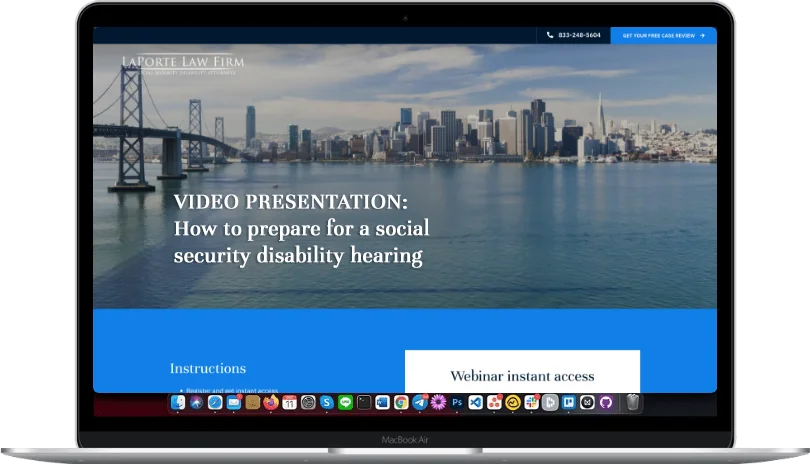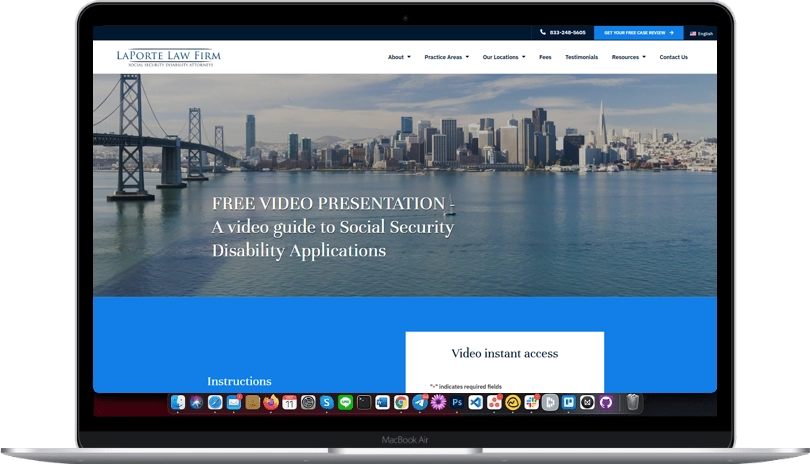
Navigating life with a disability can be daunting, especially when financial stressors such as securing affordable housing become overwhelming. While Social Security Disability Insurance (SSDI) and Supplemental Security Income (SSI) provide essential financial support in the form of monthly payments and medical coverage, these benefits do not always cover housing expenses, one of the most significant costs for individuals and families.
Fortunately, several federal, state, and local housing assistance programs exist to help. Understanding and accessing these resources can bridge the financial gap and significantly improve your quality of life.
Understanding Social Security Disability Benefits
SSDI and SSI are federal programs that provide financial assistance to individuals with disabilities. While both offer support to those unable to work due to a medical condition, they differ in eligibility requirements, funding sources, and benefit structures.
Overview of Social Security Disability Insurance
SSDI is designed to support individuals who are unable to work due to a qualifying disability. To be eligible, applicants must have a sufficient work history and have paid into Social Security through payroll taxes. SSDI provides monthly cash benefits based on past earnings but does not offer direct housing assistance.
Supplemental Security Income and housing
SSI is a needs-based program for low-income individuals who are aged, blind, or disabled. While it offers smaller payments than SSDI, it is designed to help cover essential living costs. SSI recipients may be automatically eligible for certain housing programs, especially in states where benefits are supplemented by state assistance.
Clarifying Social Security and housing assistance
It is important to note that neither SSDI nor SSI directly provides housing aid or vouchers. Instead, housing assistance must be sought through other programs such as those administered by the US Department of Housing and Urban Development (HUD) and local housing authorities.
Key Housing Assistance Programs
For those struggling with housing costs, several programs exist to offer critical support. Below is a list of major initiatives that help make housing more accessible and affordable.
Housing Choice Voucher (HCV) Program
Also known as Section 8, this federal program helps low-income families, seniors, and disabled individuals afford housing in the private market. Tenants typically pay 30% of their income toward rent, while the voucher covers the remainder. To receive HCV, you must apply through your local Public Housing Agency (PHA).
HUD-Veterans Affairs Supportive Housing (HUD-VASH)
This collaborative program between HUD and the VA offers rental assistance and supportive services to homeless veterans, many of whom are disabled. It includes case management, healthcare, and substance use treatment services.
Continuum of Care (CoC) Program
CoC is a HUD initiative that funds nonprofit organizations and local governments to provide housing and supportive services to chronically homeless individuals, including those with disabilities.
National Housing Trust Fund (NHTF)
NHTF supports the development of affordable rental housing for extremely low-income households. Funds are distributed to states, which allocate them to eligible developers and housing providers.
California Section 8 Program
California administers Section 8 through local housing authorities with state-specific regulations. Waiting lists can be long, but certain counties prioritize disabled or elderly applicants. The state also offers additional low-income housing options and rental subsidies.
Specialized Housing Assistance Initiatives
Specialized housing assistance initiatives are designed to meet the unique needs of specific populations, such as veterans, individuals with disabilities, or those experiencing homelessness. The following programs offer targeted support to help these groups access safe and stable housing.
Tenant-based and non-elderly disabled vouchers
These HUD vouchers are specifically designated for non-elderly persons with disabilities, allowing them to find suitable housing in the community and receive ongoing rental assistance.
Programs for homeless veterans and individuals
Programs such as Supportive Services for Veteran Families (SSVF) and Emergency Solutions Grants (ESG) provide temporary housing, rent assistance, and support services to homeless or at-risk veterans and their families.
Indian Housing Block Grant Program
This program provides funding for affordable housing development and housing-related services in Native American communities, including for disabled individuals.
State housing initiatives
Many states operate their own housing programs tailored for disabled or low-income residents. These may include rental subsidies, supportive housing, or state-funded Section 8 alternatives.
Low-income housing options
Beyond vouchers, disabled individuals can apply to public housing units and Low-Income Housing Tax Credit (LIHTC) properties, which offer rent-restricted units based on income levels.
Application Process for Housing Assistance
Applying for housing assistance typically involves meeting certain eligibility requirements and completing an application process. Below is a general overview of the key steps and considerations to keep in mind when seeking housing assistance.
Eligibility requirements
Typical eligibility factors include:
- Income at or below 50% of the area median income
- Disability status (with verification)
- Family size and composition
Some programs prioritize individuals who are homeless, elderly, or disabled. These priority groups may receive faster placement or additional support services depending on the program’s guidelines.
Navigating the application process
The specific steps and required documents can vary by program and location, but in general, applicants will need to submit proof of income, identification, and residency, along with any additional paperwork requested by the housing authority.
- Contact your local PHA or housing office.
- Gather required documents (ID, Social Security card, proof of disability/income).
- Submit an application.
If you’re put on the waitlist, make sure to respond promptly to all correspondence.Failure to do so may result in delays in processing your application or even removal from the waitlist.
Impact of living arrangements on SSI benefits
Where and with whom you live can affect your SSI payment amount. For example, living in someone else’s home without paying rent may result in reduced SSI benefits. Be transparent with the Social Security Administration (SSA) to avoid overpayment or penalties. To learn more about what kinds of income you must report, and the impact of the in-kind support and maintenance deduction, check out our article on the topic.
Housing Rights for Individuals with Disabilities
Everyone deserves a safe and accessible place to call home, and individuals with disabilities have important legal protections to make that possible.
Understanding fair housing regulations
The Fair Housing Act, Americans with Disabilities Act (ADA), and other laws protect against discrimination in housing. Landlords must make reasonable accommodations for disabled tenants, such as allowing service animals or modifying units. These protections ensure individuals with disabilities have equal access to housing opportunities without facing unfair barriers. Additionally, tenants have the right to request necessary changes that enable them to fully enjoy their living space.
Advocating for housing rights
If you believe your housing rights have been violated, contact:
- HUD’s Office of Fair Housing and Equal Opportunity (FHEO)
- Local legal aid organizations, such Legal Aid groups in your area
- Disability rights advocacy groups such as Senior Adult Legal Assistance (SALA) or California Rural Legal Assistance (CRLA).
Additional Resources and Support
If you need extra help navigating housing assistance, many organizations and resources are ready to support you.
Guidance for veterans
Veterans can access housing through:
- HUD-VASH
- VA Homeless Programs
- Local Veterans Affairs offices offering rental and utility assistance
Resources for homeless individuals
Contact 211, local shelters, or Community Action Agencies for emergency housing services. Programs such as Permanent Supportive Housing (PSH) combine housing with mental health and medical support.
Community-based solutions and partnerships
Local nonprofits often partner with cities and housing authorities to provide targeted solutions, including case management, housing search assistance, and financial literacy training.
Understanding how Social Security disability benefits interact with housing programs is crucial for accessing the full range of assistance you may be entitled to. LaPorte Law Firm specializes in helping individuals navigate the complex Social Security disability system with confidence. Let us guide you — schedule a consultation today to learn how we can support your journey.
FAQS
You must apply through your local PHA. Being on SSDI or SSI may help demonstrate financial need, and disabled individuals often receive priority.
Yes. While federally funded, California administers its own Section 8 program through local PHAs and includes state-specific rules and supports.
Living with others or receiving free housing may reduce your SSI benefits. Report all living arrangements to SSA to avoid penalties.
















